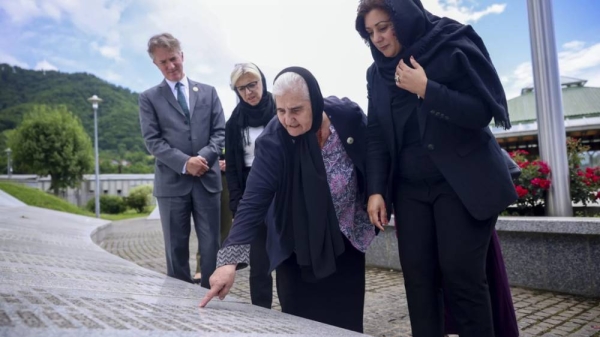The 1995 genocide of over 8,000 Bosniaks in Srebrenica is a deeply painful event in the history of Bosnia and Herzegovina, and efforts to commemorate the victims have been met with resistance from Bosnian Serb leaders. Milorad Dodik, the leader of the Serb-majority entity, has threatened to withdraw from the country ahead of a UN vote on establishing an annual day to remember the massacre. The proposed resolution has the support of the Bosniaks but has been met with protests and lobbying campaigns against it by Dodik and Serbian President Aleksandar Vučić. Both leaders argue that the resolution would wrongly label all Serbs as genocidal, even though the draft does not explicitly mention Serbs as culprits. The denial of the genocide by Serbian and Bosnian Serb authorities has caused further pain for the families of the victims, who see the UN vote as crucial for recognizing the truth and seeking justice.
The UN General Assembly is set to debate the resolution on Thursday, amidst strong opposition from Serbia and its allies, Russia and China. Dodik has voiced concerns that the resolution is being pushed by supporters of the Bosniaks and warns that it could lead to further division in the already fractured country. He has threatened to formally propose a separation of the Serb-majority entity from Bosnia, a move that could have significant implications for the region. Dodik’s previous threats of secession have resulted in sanctions from various countries for undermining peace efforts in Bosnia since the end of the 1992-1995 war. The Srebrenica massacre was a brutal climax to the conflict, which saw nationalist tensions and territorial ambitions erupt among the country’s ethnic populations. The International Court of Justice ruled in 2007 that the events in Srebrenica constituted genocide, highlighting the gravity of the atrocities committed.
Serbia’s President Vučić has launched a vigorous campaign at the UN and among developing countries to rally support for a ‘no’ vote on the resolution. The resolution condemns any denial of the Srebrenica genocide and actions that glorify those responsible for war crimes, crimes against humanity, and genocide. Both Bosnian Serb wartime leaders, Radovan Karadžić and Ratko Mladić, have been convicted of genocide in Srebrenica by the International Criminal Tribunal for the former Yugoslavia (ICTY). Nearly 50 Bosnian Serb officials have been sentenced to prison terms for their roles in the conflict, underscoring the scale of the atrocities committed. The resolution aims to ensure that the memory of the victims is preserved and that justice is served for those affected by the massacre. It is a critical step in confronting the painful legacy of the past and honoring the lives lost in one of Europe’s darkest chapters.










